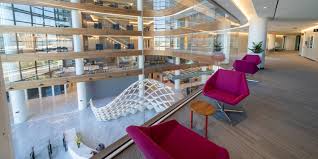1.headquarters:

1.Director General of Police (DGP):
Role: The DGP is the highest-ranking officer in the Punjab Police and is responsible for overseeing the overall functioning, strategic planning, and administration of the police force across the state.
Responsibilities: The DGP sets policies, coordinates with other law enforcement agencies, and ensures the implementation of state and national security strategies.
2. Additional Director Generals (ADGs):
Role: ADGs assist the DGP in specific areas of policing, such as operations, administration, and special investigations.
Responsibilities: They are often assigned to oversee specialized units or regions and support the DGP in implementing policies and managing resources.
3.Inspector Generals (IGs) and Deputy Inspector Generals (DIGs):
Role: IGs and DIGs are responsible for managing police operations and administration in various regions or zones within Punjab.
Responsibilities: They oversee the work of district police officers, handle major investigations, and ensure coordination between different police units and administrative levels.
4. Senior Officers and Administrative Staff:
Role: Includes officers and staff who handle various administrative functions, such as human resources, finance, and legal affairs.
Responsibilities: They support the operational and strategic needs of the police force, manage budgets, and facilitate internal communication.
2.Functions and Facilities:

1. Administrative Coordination:
Role: The headquarters serves as the central administrative unit for coordinating police activities across the state.
Responsibilities: Includes overseeing police deployment, managing resources, and ensuring adherence to policies and procedures.
2. Operations Management:
Role: The headquarters coordinates and manages large-scale operations, including special assignments and responses to major incidents.
Responsibilities: Includes planning and executing operations, providing logistical support, and coordinating with other agencies.
3.Policy Formulation:
Role: Develops and implements policies and strategies for effective law enforcement and public safety.
Responsibilities: Includes creating guidelines for police conduct, setting operational standards, and updating procedures based on evolving needs.
4.Intelligence and Information Management:
Role: Handles intelligence gathering and information management to support criminal investigations and public safety.
Responsibilities: Includes analyzing crime data, sharing intelligence with relevant units, and supporting strategic decision-making.
5.Training and Development:
Role: Oversees the training and professional development of police officers.
Responsibilities: Includes organizing training programs, evaluating training needs, and ensuring that officers are equipped with the latest skills and knowledge.
6. Public Relations and Communication:
Role: Manages communication between the police and the public, including handling media relations and public inquiries.
Responsibilities: Includes issuing press releases, managing social media accounts, and addressing public concerns.
7. Specialized Units Coordination:
Role: Coordinates with specialized units such as the Special Task Force (STF), Crime Investigation Agency (CIA), and Anti-Narcotics Task Force.
Responsibilities: Includes integrating efforts across units, sharing resources, and ensuring a cohesive approach to tackling specific issues.
3.Facilities:

1. Conference Rooms and Briefing Areas:
Usage: For meetings, strategy sessions, and briefings involving senior officers and specialized teams.
Purpose: To facilitate planning and coordination of major operations and policies.
2.Forensic and Technical Support Rooms:
Usage: Forensic analysis and technical investigations that support ongoing cases.
Purpose: To provide space for the examination and processing of evidence.
3.Administrative Offices:
Usage: For handling day-to-day administrative tasks, human resources, and financial management.
Purpose:To support the overall functioning and management of the police force.
4. Training Facilities:
Usage: For conducting training sessions, workshops, and seminars for police personnel.
Purpose: To ensure continuous skill development and knowledge enhancement for officers.


